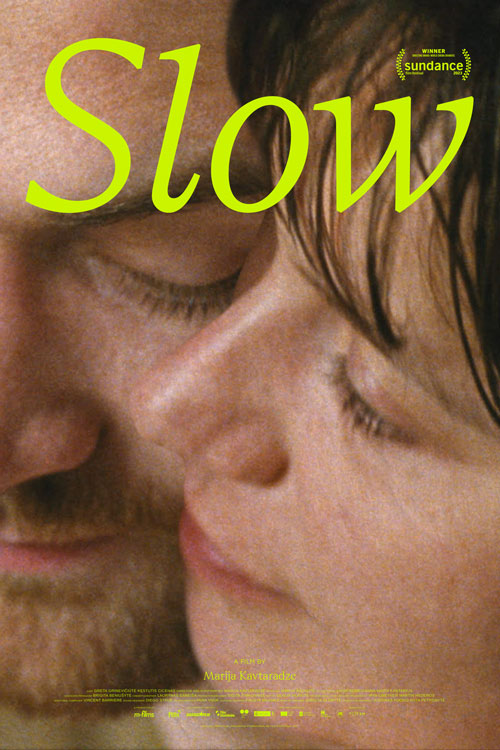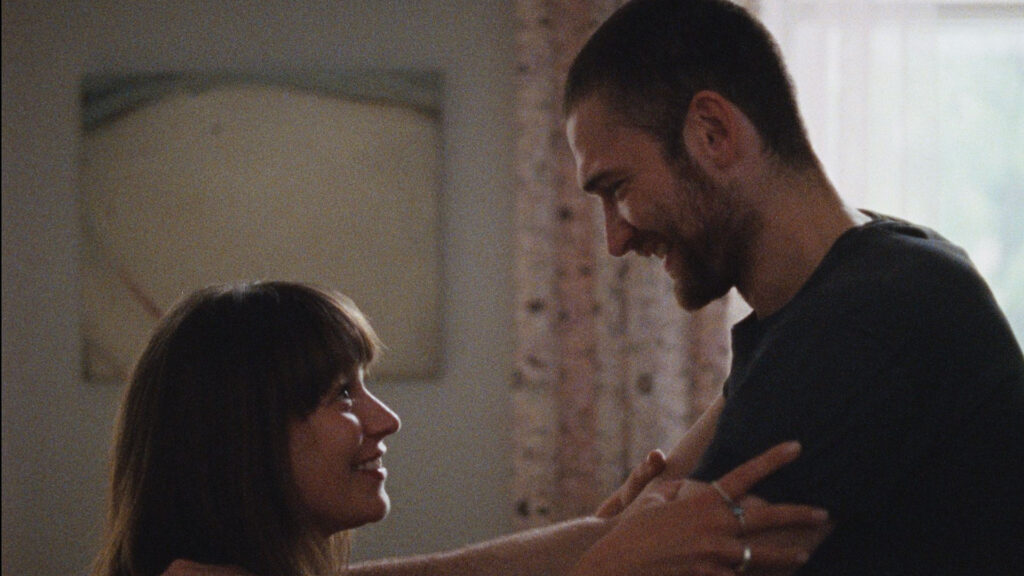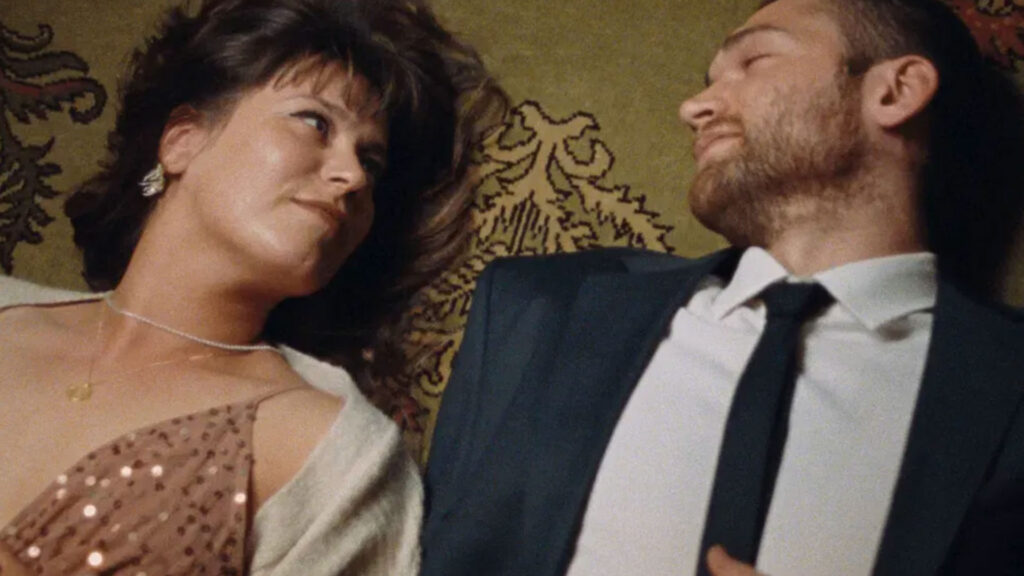
Relatively recent definitions of different types of sexual orientation and gender identity have helped to shine a spotlight on those who most certainly already existed but didn’t – and still might not – necessarily fit into a particular box. Because society has largely advocated for heteronormative relationships throughout history, it can be difficult for those who do feel comfortable with traditional classifications to understand those who do not. Lithuania’s Oscar submission Slow presents an engaging and complicated story of one such dynamic.
Elena (Greta Grinevičiūtė) is a dancer who one day meets Dovydas (Kęstutis Cicėnas), a sign language interpreter assigned to work with a group of deaf students for a contemporary dance class. They quickly realize that they like each other, and before things get too serious, Dovydas shares an important detail about himself: that he is asexual. The two continue to spend most of their time together and pursue a close relationship, but Dovydas’ lack of sexual attraction to his partner remains a stumbling block that Elena struggles to understand and to accept will likely never change, no matter how strong his feelings for her are.

Slow is a welcome fresh and modern spin on the star-crossed lovers format, zooming in from some universal perspective on an extremely intimate story of two people whose romance shouldn’t be all that complicated. When Dovydas first mentions his asexuality, both remark the suddenness of that confession and how it would have been impossible to transition naturally to it. But simply sharing it isn’t enough, since there’s much more for Elena to understand as time goes on, like how he might be okay with her fulfilling her sexual needs elsewhere and, in turn, he might be able to find his own sexual fulfillment for purely biological reasons without attributing it to any one person he finds attractive.
This is not a comprehensive or definitive look at what asexuality is or how it manifests in relationships, and shouldn’t be perceived as such. Many coming to see the film, particularly those blindly screening a number of Oscar contenders for Best International Feature, may be entirely unfamiliar with the concept since it’s not as widespread or, unfortunately, villainized as other notions of sexuality. What everyone should find is a heartwarming story of two people who know they care about each other but need to determine a way to make it work since they can’t be exactly who the other needs them to be.

Director Marija Kavtaradze’s second feature film is a beautiful exploration of two people brought to wondrous life by her actors. Grinevičiūtė and Cicėnas are remarkable finds who feel comfortable and natural on screen despite very limited film acting experience. Their faces say so much, and the camera, as guided by cinematographer Laurynas Bareisa, often shoots them from mirrors so that their reactions are perceived in a way that mimics how they hope the other would respond and not necessarily what they actually say and do. It’s an effective device that only adds to the emotional impact of the film.
Slow, which took home the World Cinema – Dramatic Directing Award at the Sundance Film Festival this past January and has a chance to become the first Lithuanian film ever shortlisted for the Best International Feature Oscar next week, understands that less is often more and smartly stays tightly focused on its characters and their small worlds. Movement also is key to the way in which they interact due to Dovydas’ animated signing and Elena’s proficiency in dance, and that layer enhances this film’s resonance in its stirring showcase of two people who really want to love each other and are still searching for the missing pieces to make it last.
Grade: B+
Check out more of Abe Friedtanzer’s articles.
Slow is Lithuania’s official Oscar entry for Best International Feature and will be released theatrically in New York and Los Angeles in Spring 2024.

